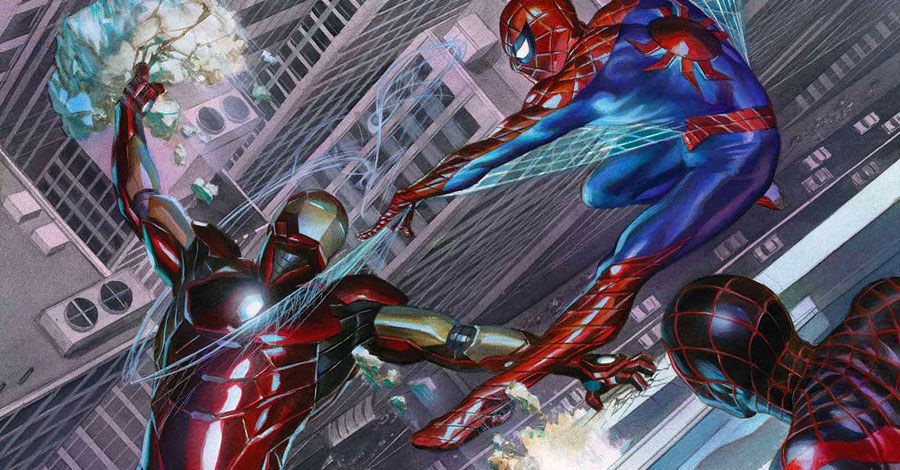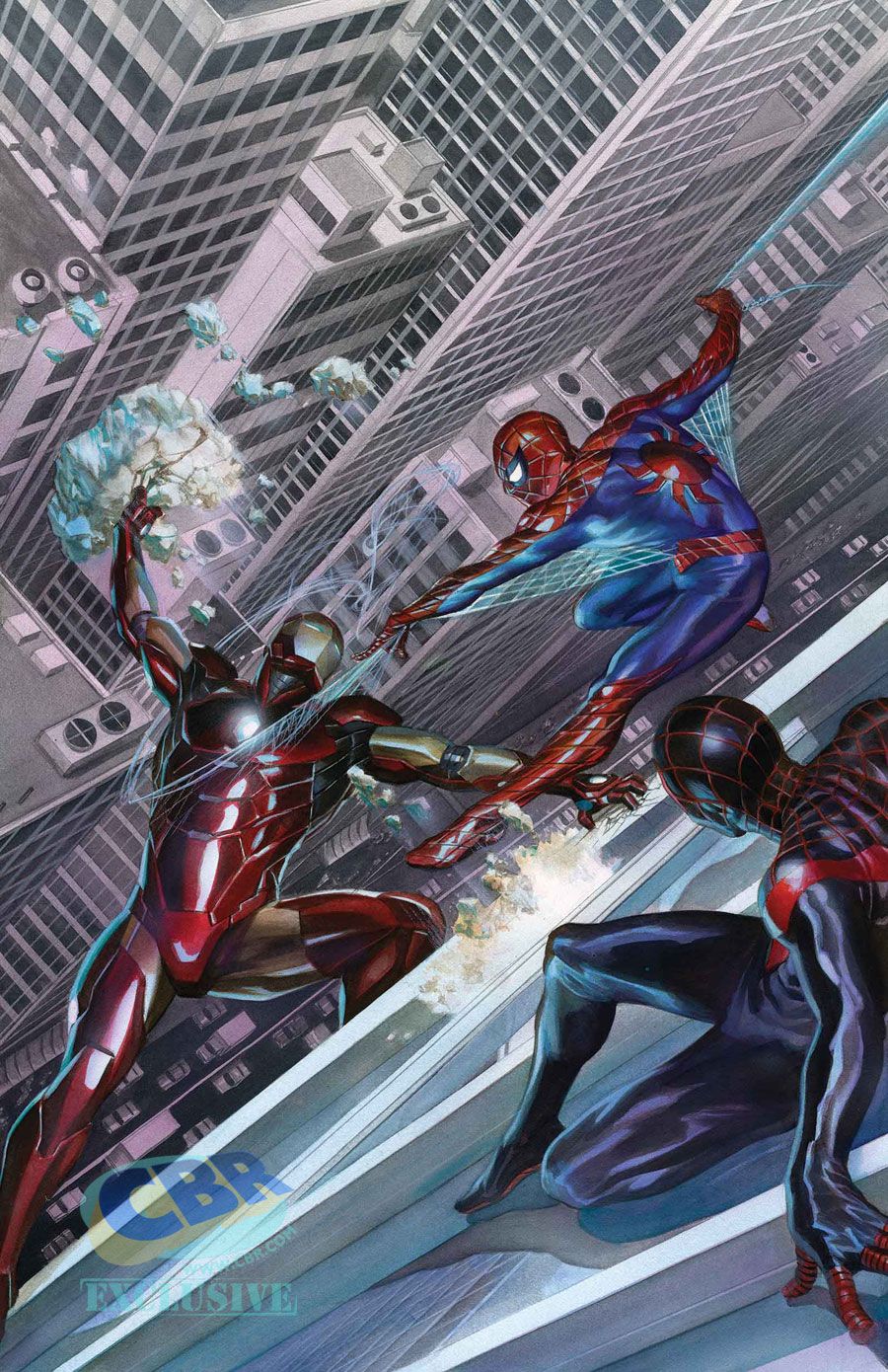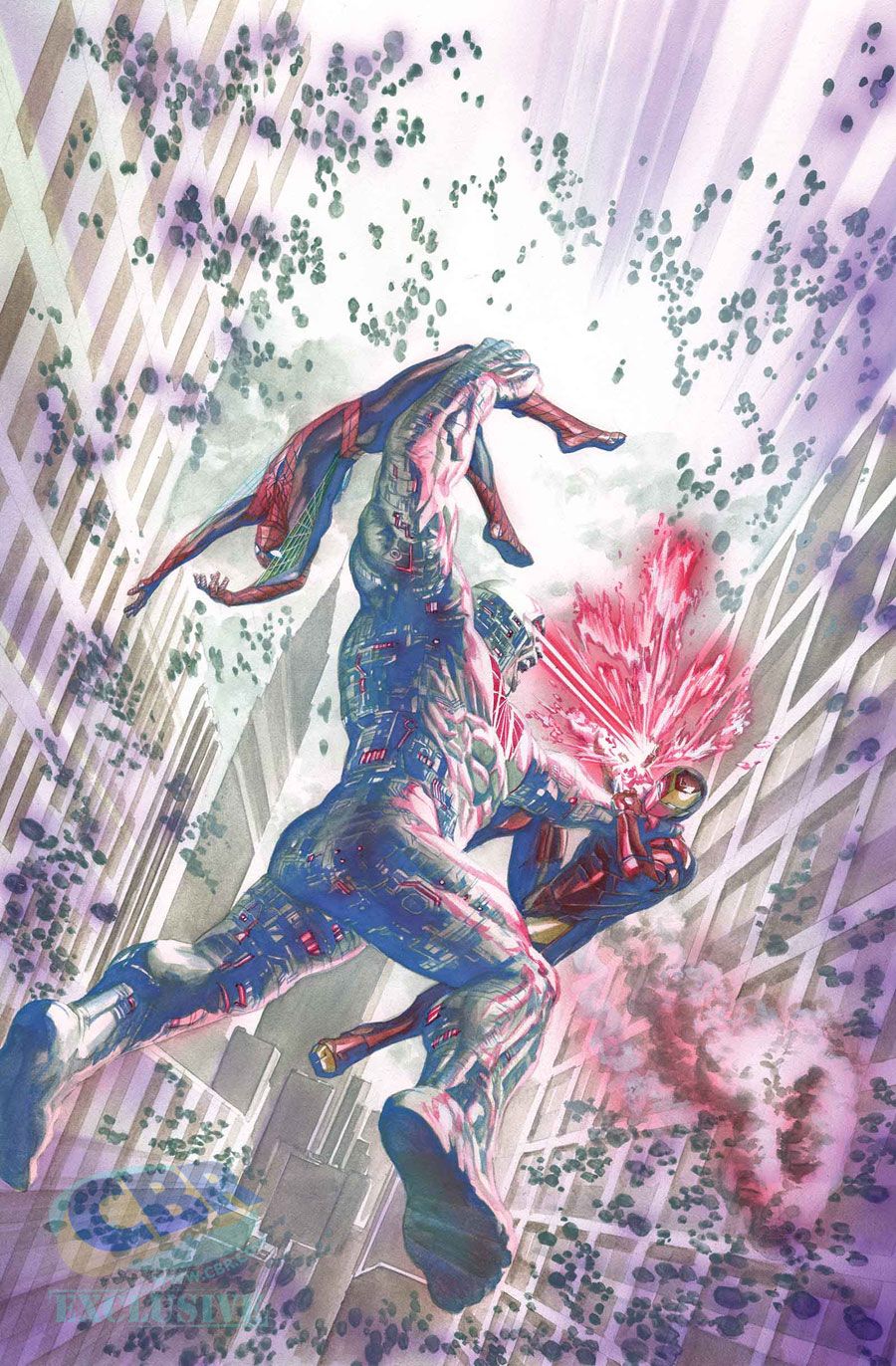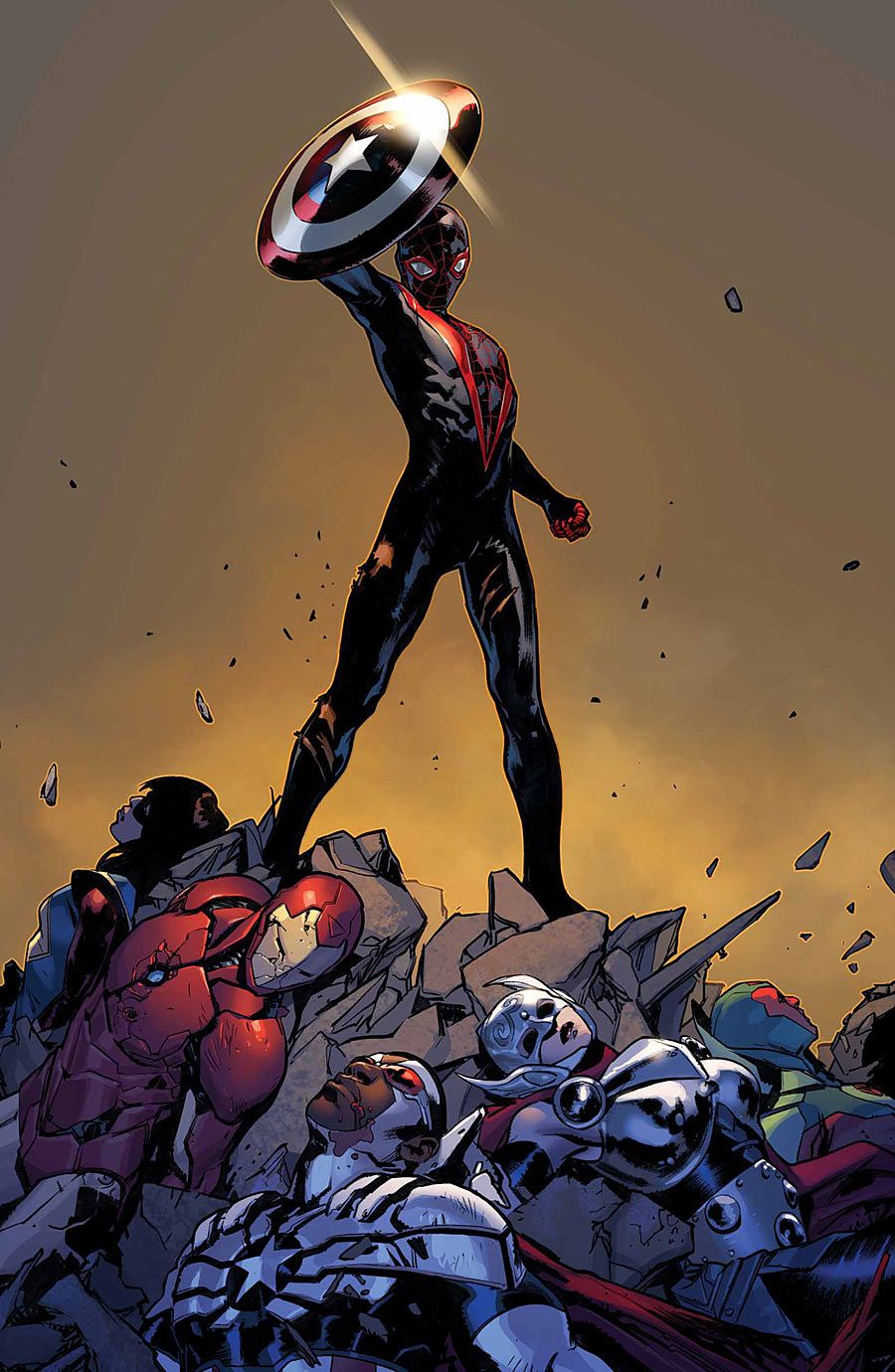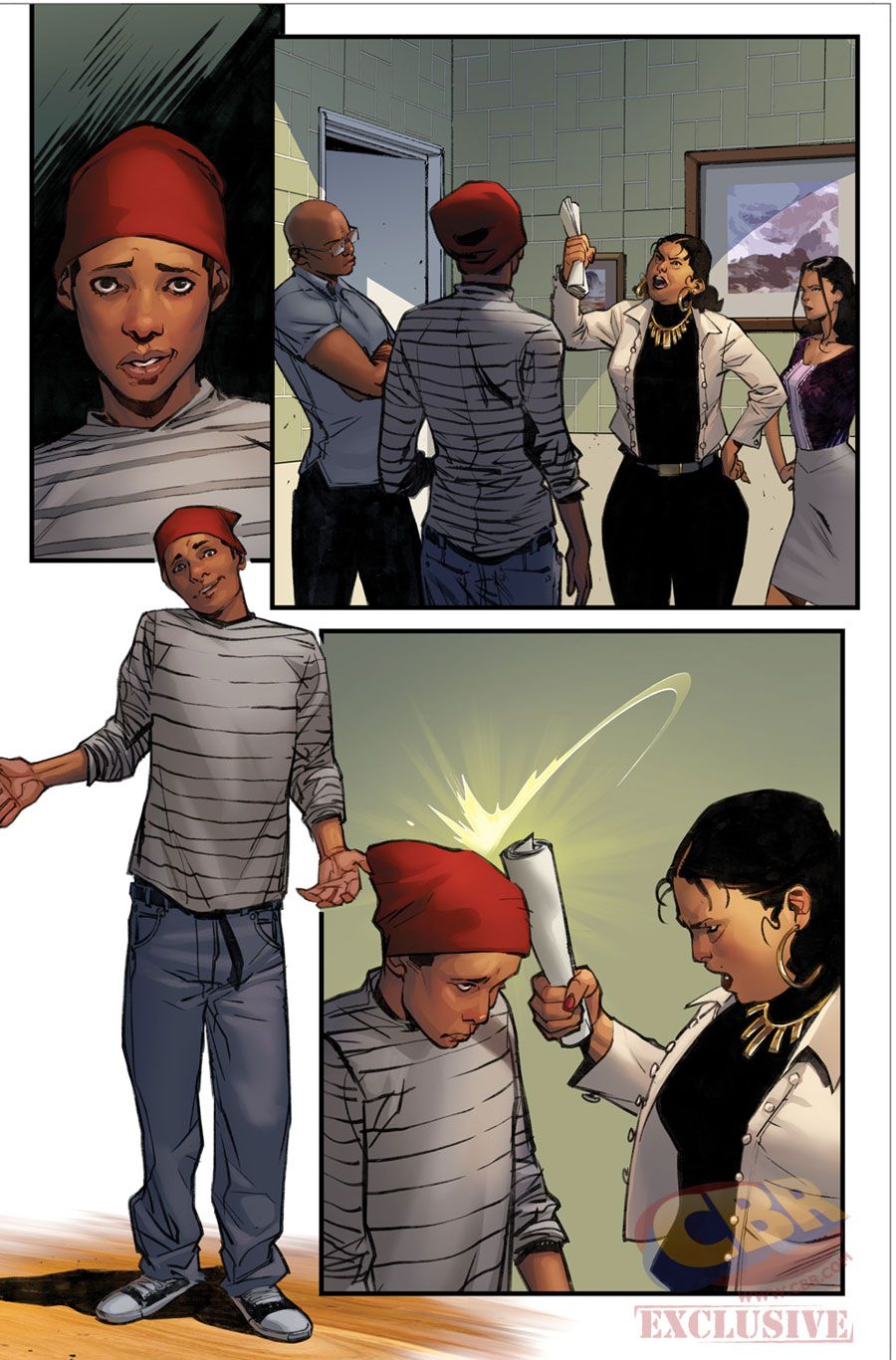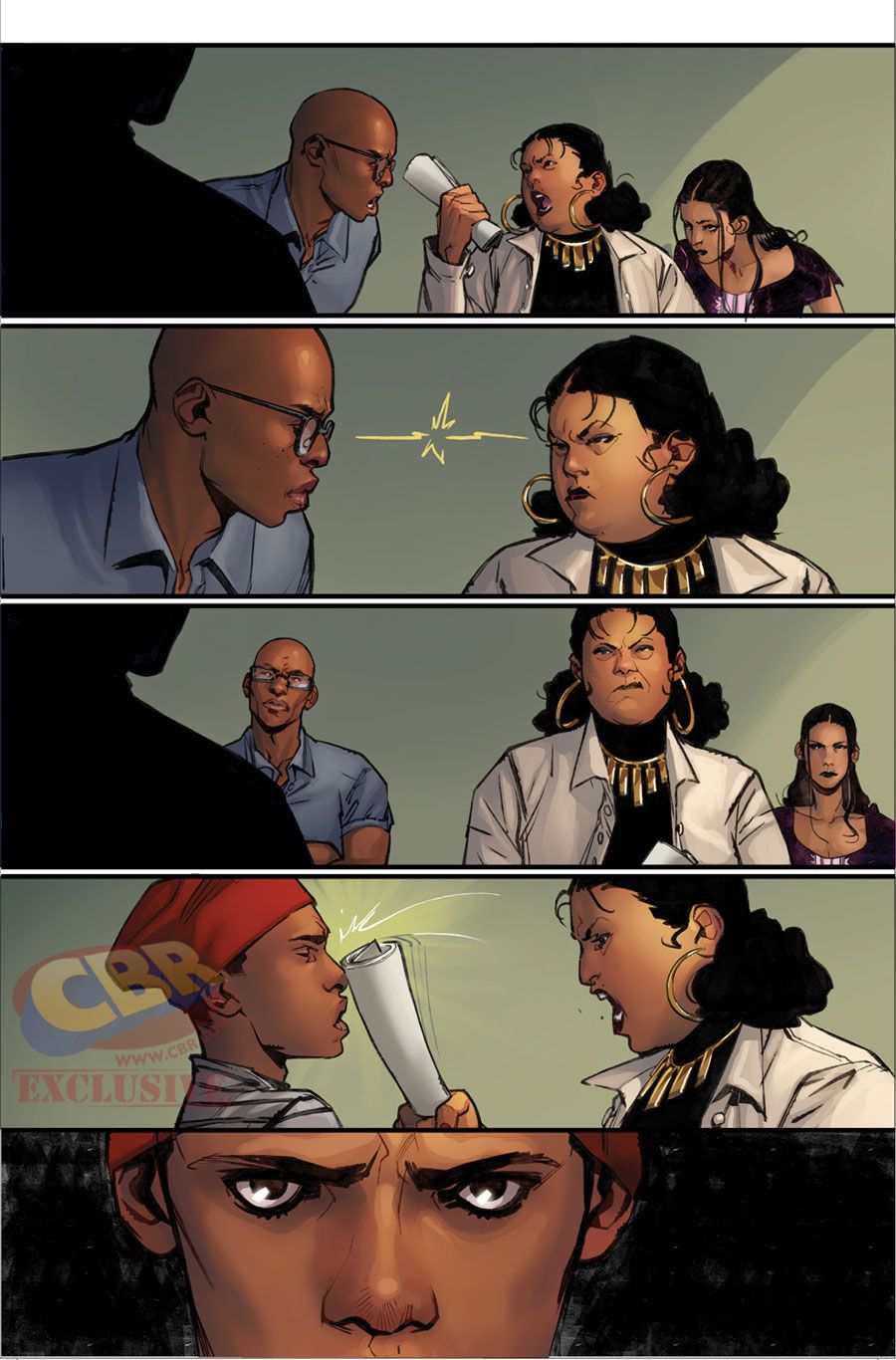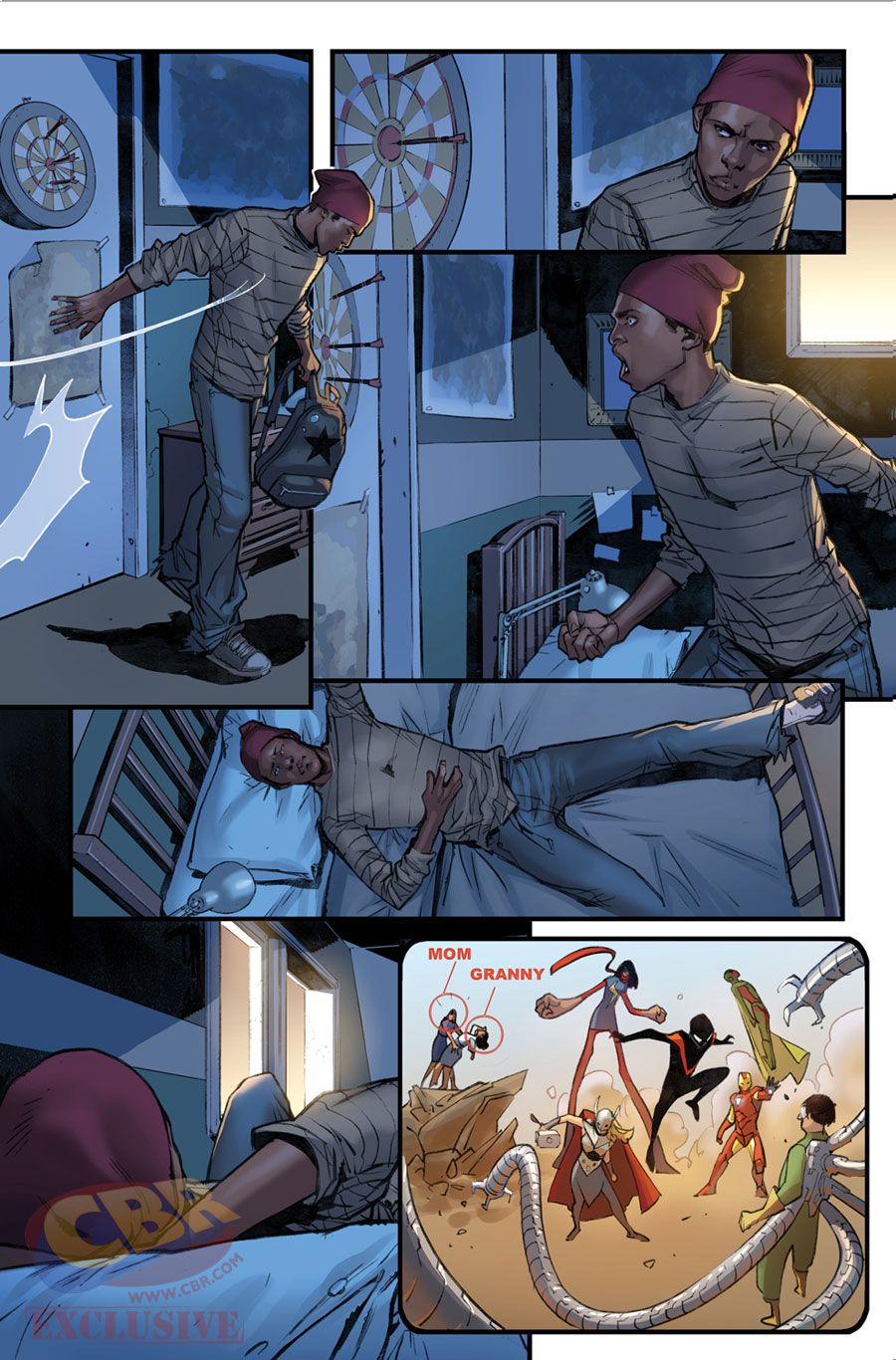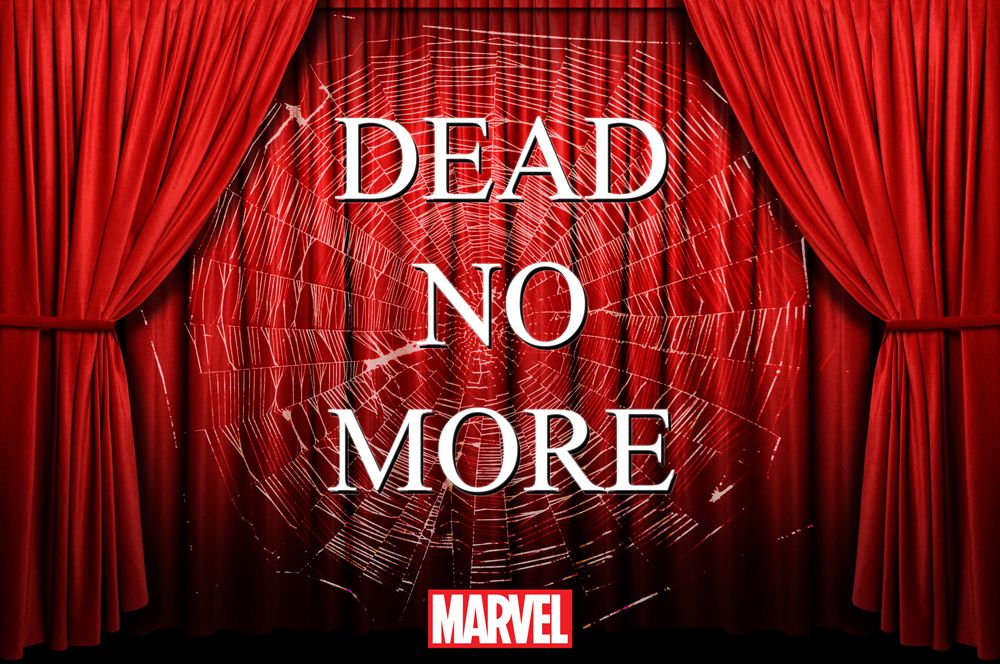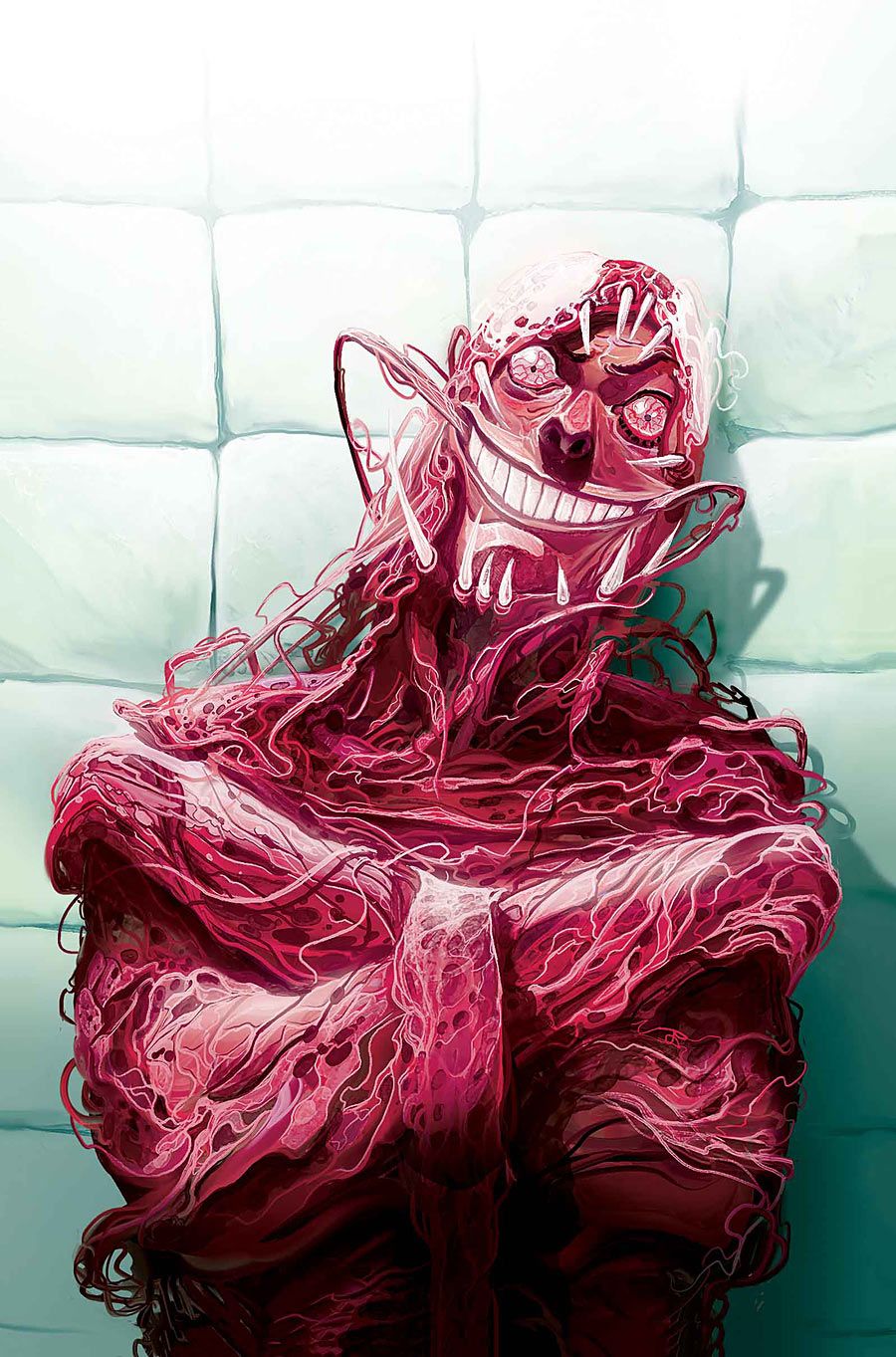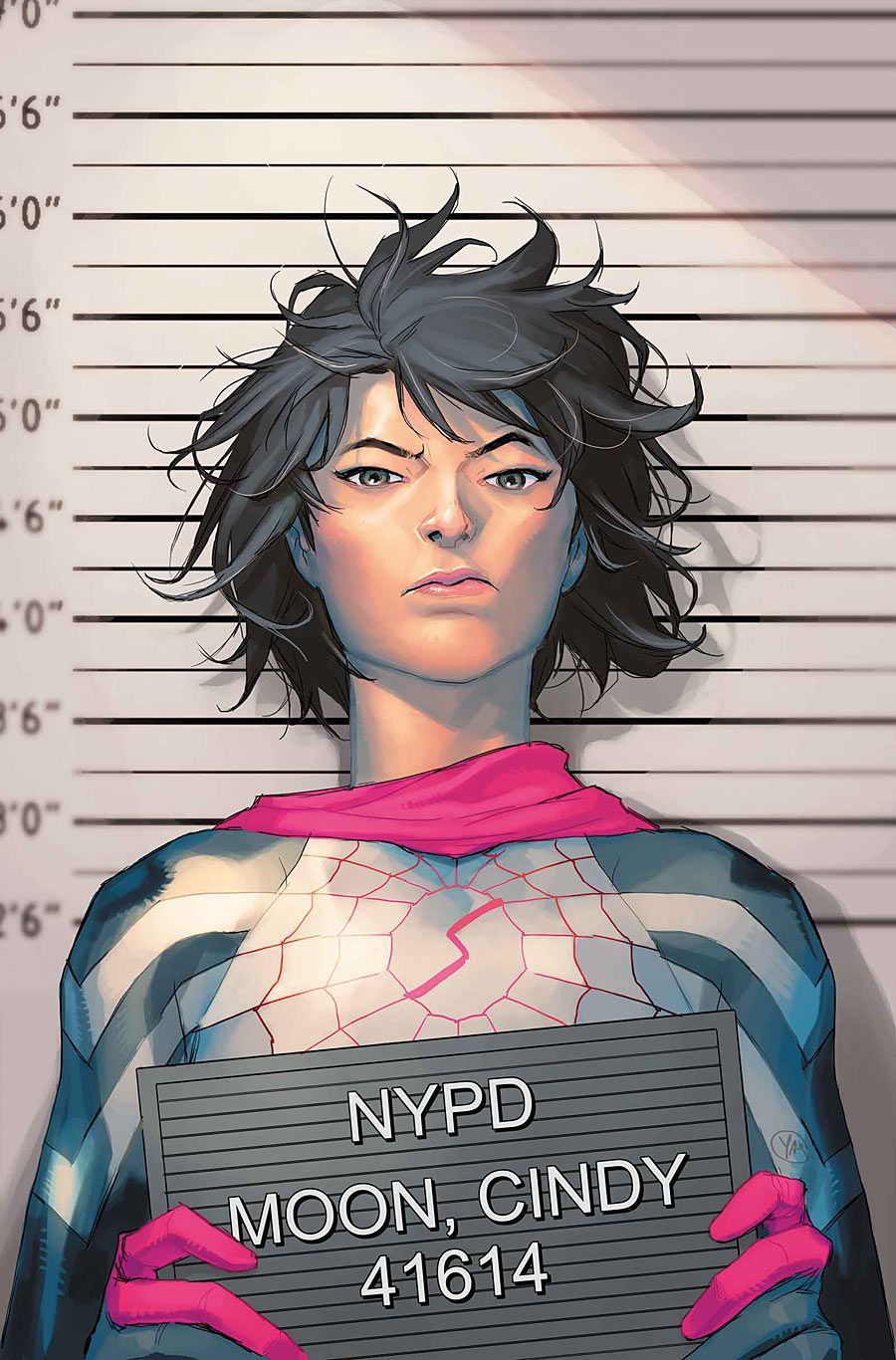It's been 10 months, but nothing good ever stays dead in comics! Welcome back to SPIDER-MANDATE, CBR's regular Q&A column delivering the lowdown on everything Spider-Man. From the core adventures in "Amazing Spider-Man" to who will play key roles in the upcoming "Civil War II" event to the myriad titles in Spidey's corner of the Marvel Universe, Peter Parker and company certainly have their hands full.
To officially re-kick things off, we conducted a "State of the Spider-Verse" interview with Marvel Senior Editor and Spider-Man group editor Nick Lowe, discussing everything from where the world of Peter Parker and his amazing friends is now, to the artists who bring spider-stories to life, to the approach to each specific title.
RELATED: Marvel's FCBD Issues Reveal All-New Wasp, Dan Slott Writing "Dead No More"
Wondering how the Spider-office reacted to the recent controversy over "Spider-Man #2"? Or if "Dead No More" will really change things in Peter Parker's life? Read on, and swing back for part two on Thursday.
CBR News: Now that we're a couple months removed from "Secret Wars," what's the mission statement for the Spider-books?
Nick Lowe: My goal is to tell as wide-ranging a set of stories with these characters as is humanly possible. Going back quite a way, as a reader a lot of the Spider-stories, nearly all of them centered on Peter Parker, and they all told standard superhero stories. They were usually pretty fantastic, but there was room to editorially get in there and do something different.
That's been my goal going in here, picking up what Steve Wacker left behind -- who did such a great job with all of this stuff -- but coming in with "Spider-Verse," and everything past then, trying to take a look at what it was.
It was two-fold: there's a good thing going, and I wanted to make sure I didn't screw that up. That's "Amazing Spider-Man," that's Dan Slott, the stuff Steve had started and Ellie Pyle of course. And then to try and branch out with the Spider-line in as big of a way as I could.
You worked on the "X-Men" books for a really long time, so you know the difference between lines. Other than spiders on the costumes, what makes the Spider-Verse books different from "X-Men" or "Avengers" or any of the other groups?
Coming in, it was a huge relief not to be working on fourteen team books. [Laughs] Peter Parker is at the center, he always was -- and rightfully so, because he's the best superhero ever. Not only does he have a great costume, and he's funny, he's got a great core. He's got a great, simple code that's centered around not stopping the robber that killed his Uncle. He's a guy who tries so hard, and will sacrifice everything in his life to do the right thing. To go out of his way to help anybody.
That's at the core of all things Spider, at least as it stands right now, where we go with it right now. All the other characters are to some extent informed by that, or react toward that. We're starting to diversify as we're building these new characters and they're finding their legs. But that guilt, that heroism is very much at the core of all things Spider, because Peter is such a strong character.
Beyond that, what we try to do with every book is give a different flavor, a different taste. That very much comes down to the creators involved. I like to think that each book has a different point of view, a different thing to say. But at its core, it's about Peter Parker. It's about, with great power, must come great responsibility.
With the possible exception of Carnage, the Spider-characters tend to be pretty solid quip machines. Is that another aspect of Peter that seeps into the other characters? Do you ever have to pull the writers back from just writing variations of Mr. Parker?
To answer the second part first, luckily I've got the best writers in the business working on these books. And just about every writer working on these books is a character-first writer. That's how I think of myself editorially as well. The characters, whether it's X-Men or Spider-Man, are always what drew me. The plots are always fun -- there's good fun to be had there -- but unless you're having meaningful things happening with the characters, what's the point? I tune out when things get too plot heavy.
To that end, all these writers bring so much of themselves to the page -- whether it's Dennis Hopeless with Jessica Drew, bringing so much of his life to what's going on in "Spider-Woman," to Robbie Thompson, when you talk to him... He pretty much is Cindy Moon.
But humor is definitely a huge part of the Spider-books, and it always has been. Part of that is, it's just a part of good comics. You want them to be fun and funny and not all serious all the time, but there's something to that levity that makes it work, and is a great counterpoint to the big, crazy melodrama we often do in comics. So it's something I love about them, but it's never been any mandate, like, "this many jokes per issue." Mostly it's just the writers that we have working on these books, that's their natural state of things. They dig into [those] characters, and they're all funny people.
Especially when you get someone like Brian Michael Bendis on adjective-less "Spider-Man," his books have always been so damn funny. That's why he's such a great fit for these characters. Just wait until you get a load of where he goes with it. He really is firing on all cylinders with this book.
What about the artistic mission statement? What's the broad stroke, is there a unifying theme?
There's a little sense of trying to make them different, but the biggest thing we do is try to find the perfect artist for the book, and especially for the character. So many times, they're tied so tightly to the identity of them. When we're clicking, there's almost no other way it could have gone. With "Spider-Gwen," that came so much out of what Jason [Latour] and Robbi [Rodriguez] had started to build in their friendship, and what their interests are. Without Robbi, there wouldn't be Spider-Gwen... He's just so much a part of her life-blood. His design of her, I still credit as to why that book has been so successful, just that design out of the gates, and when we started working on that stuff.
Giuseppe Camuncoli on "Amazing Spider-Man," I've always been a fan of his. He blew me away, particularly with that last arc of "Superior Spider-Man." I think I maybe gave him his first work at Marvel years ago with "X-Infernus" -- by no means did I discover Giuseppe at all -- but he and Dan mesh so well together, and Dan writes in a very, specific way. [Giuseppe] is always there supporting, and making what Dan does even better. His storytelling is so tight. He's the perfect of an artist that's flashy, but not so much that it takes away from what's going on, in the story. Story is the most important thing when it comes to Camu. It's really exciting to work on that.
Getting to Sara Pichelli on "Spider-Man." As one of Miles [Morales]' co-creators, she's perfect for that book. But even just looking at where she was at that point, and where she is now, she's so incredible, and brings such life to that book. And the acting she brings to the table... It's magical.
We already mentioned Robbi Rodriguez, I can't talk enough about what an amazing job he's doing on "Spider-Gwen." Just the amount of attitude and character he brings to the Mary Janes.
To "Silk" with Stacey Lee getting in there right out of the gates, and defining her look, and who she is. And now Veronica Fish and Tana Ford, what they bring to the table given the different sides of Cindy [Moon] has been incredible.
Javier Rodriguez, oh my god, he is doing the work on his life on "Spider-Woman." The Will Eisner-esque things he's doing there have blown me away, and I hope that enough people are taking note. He's doing a master class in some of the best cartooning in a long, long time. Javier and Dennis mesh so well together it's crazy. Between talking with Ellie Pyle, and then Devin Lewis when he came on, who is now the editor of that book -- so much of what they do is them working together, and it's just fantastic.
"Spider-Man/Deadpool" is just exploding out there, but they're just perfect for that book. Not only are Joe [Kelly] and Ed McGuinness so well known for "Deadpool," but Ed draws such an incredible Spider-Man. I just want Ed to draw everything.
"Web Warriors," which I don't think enough people are noticing what a great book that is, just so surprising at every time. And David Baldeon, his art on there... Each page comes in, and Devin and I jump up and down. It's just so exciting.
To "Spidey," with Nick Bradshaw, who has done such spectacular work, and Andre Araujo taking over the reins there. They have such different styles, but I think people are going to be nicely surprised.
To Will Sliney on "Spider-Man 2099," who has done such incredible work. His realistic art style, and the amount of detail he's put in, and he's just the nicest guy on the planet.
To Mike Perkins on "Carnage." That book took on a life of its own as we were talking about it, and going there. What Gerry [Conway] and Mike have done on that book... When we were talking we hit on this "Tomb of Dracula"-esque book. Carnage is a tough nut to crack. It's hard to have a book where he's the protagonist. So we have this team hunting him. That book terrified us with every scripted page that comes in, that book is so scary to me, but it's such a different feel from anything we're doing that I love working on that.
RELATED: Bendis Says "Spider-Man" Will Explore Race and Media Issues
And the "Point One" series from Simone Bianchi! As an editor, you're just trying to do as wide a range of stuff as you can, because everyone has different tastes. You want to try and make a book for everybody, and you want to also make it something you like as well. It helps when you're at a company like Marvel, where you have the best artists in the world working for you, to do that.
But we just have to find the best thing for each book, the best artist, the best art, to make it what it needs to be to succeed in the market.
Let's focus in on specific titles, starting with "Spider-Man." As you probably know, there was a bit of an internet blow-up to a scene in issue #2, when Miles says "I don't want to be the Black Spider-Man. I want to be Spider-Man." It's funny, because this issue felt like Bendis' reaction to the Twitter reaction to "Spider-Man," which inevitably spawned its own Twitter reaction. I saw a lot of chatter that this felt too dismissive of the conversation, so I'm curious what you've talked about in regards to the reaction internally, and what -- if anything -- you plan to do to address it.
So much of it comes down to, I just trust Brian. He's an incredibly smart and an incredibly thoughtful writer. He comes at this from a very different angle than I could ever myself. So much of that has to do with just trusting him, and what feels right. At the end of the day, as much as people can try to say these are a company's mouthpiece, or even a writer's mouthpiece, so much of how Brian works is about the characters and the life they take on themselves.
We've worked together for almost fourteen years now, from when I first started working on Marvel Knights as an assistant on "Daredevil." So I feel like we know each other pretty darn well at this point, and one thing about him -- he's such a character first writer, and if characters take things in a certain direction, any plan he's done can go out the window, because that trumps all with him. Miles is a character he's thought about as much, if not more than anybody -- and it's a character that speaks to him, and his life, and his family. It's very important to him to let Miles be Miles.
Everyone is going to come at this stuff in a different way. It's a tough subject, don't get me wrong. But it's the sort of thing, I let the writer speak for themselves and the work speak for itself. This topic is going to be ongoing. Through this whole book.
Specifically, the reaction was, "how could you have a white writer saying this about an Afro-Latino character?" and adding that if it was an Afro-Latino writer, it might be a different circumstance entirely. As you mentioned, Brian has an incredibly diverse background and his family is incredibly diverse. There's two questions here: in your estimation, does it matter to get that background Brian has across to readers? And would you consider having an Afro-Latino writer try their hand at Miles at some point in the future?
As a company, right now we have -- I think -- the best track record in bringing a diverse talent pool to the core. Can we do better? Absolutely. We're trying to do better. As far as this book, right now this is a book that Brian and Sara, and Justin Ponsor on colors are working on. We try to just tell the right stories, and as far as this specific case here, it's pretty clear here that Miles here is working through [it] himself. It's very rare that any person has -- "I've thought through this completely, from every angle, and here's my opinion!" Brian is working through all this, as he's trying to write the character. Miles is working through it, and I don't think you can dismiss it just because he's a White guy. He's got a lot going on in his life, and that's part of who he is.
We are way open to Afro-Latino writers, and I don't want to get too into that as a topic here. But the story is not done. This is a character who is still forming, just like we're all still forming. I'm still forming as a person myself. It's a tough one to talk about. We are constantly looking for new writers to continue to find the best writers who write comics, and to put them on books that they would do the best job on. So who knows what the future will bring on that front?
On a slightly lighter note, the first few issues were all about establishing Miles' new status quo. Now that that's out of the way, what can we expect from "Spider-Man"?
Miles' life will be in near constant turmoil. Between living life as Miles Morales, student, Miles Morales, Spider-Man, and Miles Morales, now grandson of this incredibly powerful woman... He's also an Avenger. This first arc, Brian is setting the stage for where he and Sara are going. Black Cat is a huge part of it, and you'll start seeing in issue three what her game plan is, and how she's going to be asserting herself.
I was pleased to see how much Brian ran with the new status quo of Black Cat that Dan established in "Amazing Spider-Man." That's the sort of stuff that's so fun to me in this shared universe, when threads get picked up in different places and taken to the next level. But Black Cat is going to be a huge part of the book, and a huge challenge going forward.
Miles will also have a role in "Civil War II," and what we have planned after that is pretty hardcore.
RELATED: Dan Slott Has a "Giant, Evil Master Plan" for "Amazing Spider-Man"
Let's move on to the flagship, "Amazing Spider-Man." Spider-Man fans are usually very accepting of major, seismic changes, so were probably a-okay with Peter ending up running a global company and going international. But seriously, a few months in, how are you guys feeling about this new direction -- and the reaction to it?
I'm super proud of the work we've done on the book. I was so relieved people got so upset about what we were doing. If there's one thing that [Editor-in-Chief] Axel Alonso taught me is that the more you know when you're doing something right is when so many fans say, "the sky is falling." When people are worried about what you're doing, that's when you get the most eyes on you, and the most vital.
I loved seeing the skepticism with which people took to this new direction. As readers by this point should know with Dan, he plays the long game. He's laid out a bunch of pieces, and we recently announced "Dead No More," and there will be a bit on Free Comic Book Day. That's a really incredible story we've been seeding for some time now.
There's the stuff with the Living Brain, and this Regent story coming up -- Dan is a planner. One thing the accelerated schedule -- three times every two months -- of "Amazing Spider-Man" does is, let us move through a good amount of story. The goal right now is to move through a new status quo and put Peter on the skinny branches, that's an old thing a theater director of mine, when I was back in my acting days [Laughs]... When I was going there with a character, you gotta get on the skinny branches, go out there where the things can break under your weight. That's where the magic happens.
What we've got coming up is pretty incredible with the Regent character. He's a character from "Renew Your Vows," and we've shown Mary Jane is going to be part of this arc as well. We're really excited for where we are, and as much as we see Brian riffing off of what Dan does in "Spider-Man," with Peter showing up there, and "Iron Man" with Mary Jane and Miles all showing up in this Regent arc, it's fun to see everyone play in the same sandbox.
I will say this, though -- where we're going with "Dead No More" and beyond that is as big, or bigger, than what Dan did in "Superior Spider-Man." I can't wait for everyone to see it.
The "Point One" book has been dealing with a group that may or may not be bringing people back to life. Does that tie into "Dead No More" at all?
They're mostly separate. I wouldn't say they have no connection, but you don't necessarily need to read the "Point One" issues to understand what's going on in "Dead No More." But they're certainly playing with some different themes in the aether. What Jose [Molina] and Simone are doing on that book is really cool. You'll see a little bit more of the Santerians as we go along.
Check back soon for Part 2 of SPIDER-MANDATE's extra-large return, with Nick Lowe!

